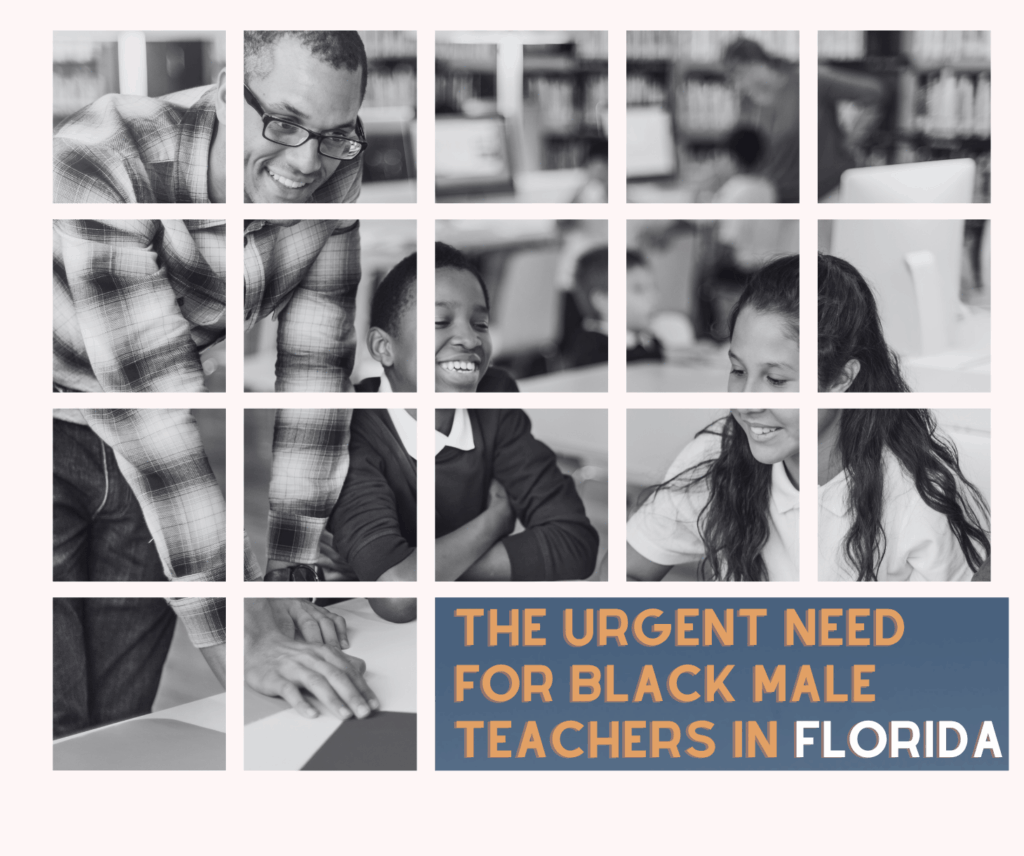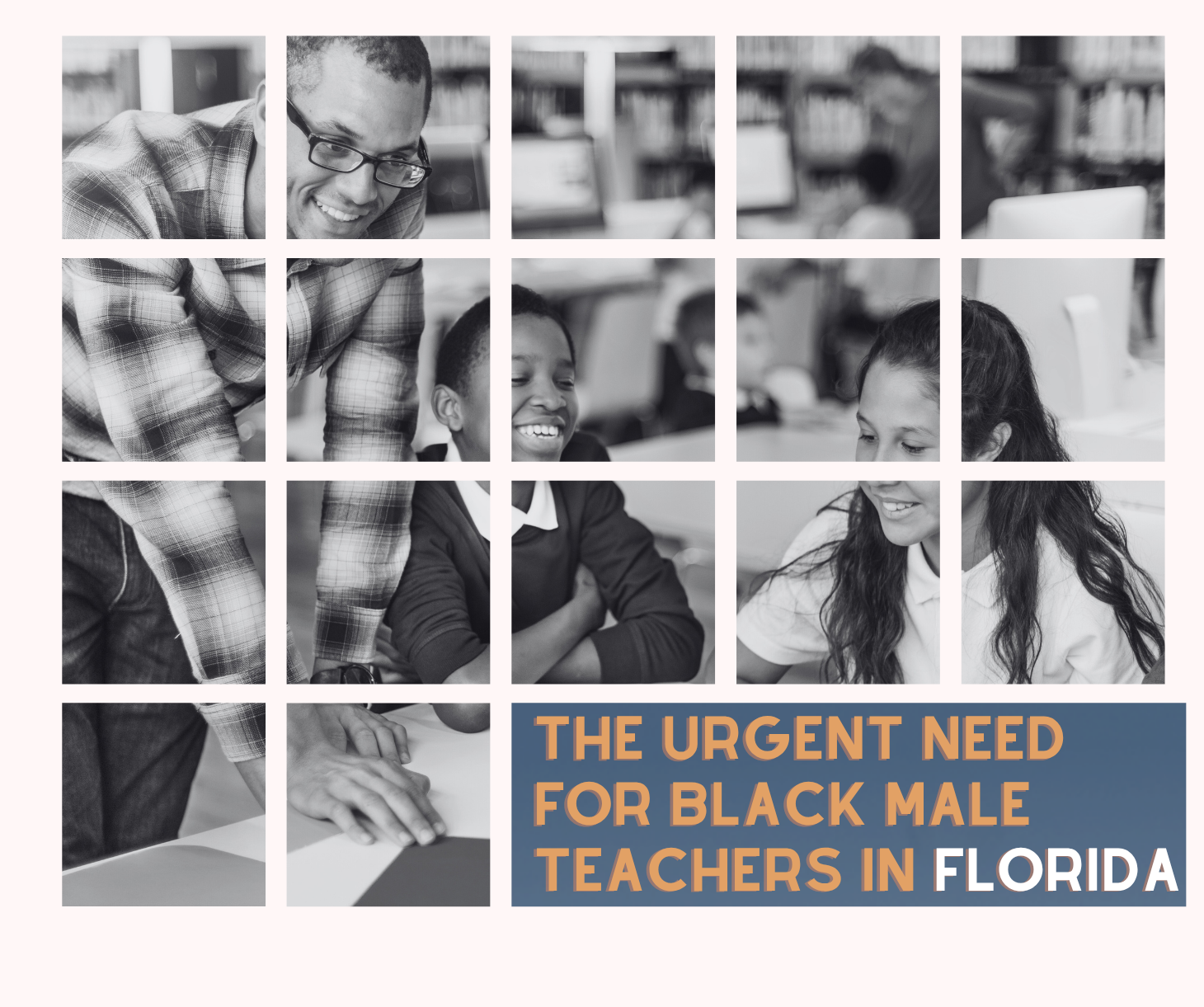
The Urgent Need for Black Male Teachers in Florida Schools
Representation matters, and for Black boys, it can make all the difference. Teachers are more than instructors; they are mentors, role models, and often the first example of leadership a child encounters outside the home. Yet in Florida, a critical gap exists in who stands at the front of the classroom.
Why Representation Matters
According to research conducted at Johns Hopkins University, studies show that when Black boys have even one Black male teacher before third grade, they are 39% more likely to graduate high school. That single connection can spark confidence, engagement, and a belief that success is within reach.
But in Florida, Black men make up less than 2% of the teacher workforce. This underrepresentation sends an unspoken message: authority, leadership, and academic excellence do not look like them. Without visible role models in education, many Black boys risk disengagement, decreased motivation, and the reinforcement of negative stereotypes.
The Power of Black Male Educators
Black male teachers do more than cover lessons. They model possibility. They bring lived experiences that connect with students who might otherwise fall through the cracks. They shift school culture by fostering inclusive environments and by challenging low expectations often placed on Black boys.
National data reinforces these outcomes. Students with teachers of color, particularly Black men, report stronger relationships, fewer suspensions, and improved academic outcomes. For Black boys especially, seeing themselves reflected in positions of authority can shape how they envision their futures.


Challenges to Recruitment and Retention
While the state of Florida has made efforts to recruit more teachers of color, the results remain limited. Recruitment is only one part of the equation, and retention is where many efforts fall short. Black male educators often face unique challenges, including:
Burnout and isolation: With so few peers who share their identity, Black male teachers may feel pressure to serve as disciplinarians or role models beyond their classroom duties.
Lower pay incentives: Teacher salaries in Florida lag behind the national average, making recruitment into the profession less appealing, especially for men who are primary earners.
Limited mentorship opportunities: Without mentorship or clear pathways to leadership, many educators struggle to grow in their careers and ultimately leave the profession.
These challenges contribute to high turnover rates and reduce the long-term impact of teacher diversity programs.
Pathways Toward Solutions
The Florida Council on the Social Status of Black Men and Boys (CSSBMB) believes that targeted, sustained strategies are needed to grow and support the pipeline of Black male educators. Solutions include:
Targeted recruitment programs that identify promising candidates at historically Black colleges and universities (HBCUs) and within Florida’s own communities.
Alternative certification pathways that make it easier for Black men with degrees in other fields to transition into teaching.
Mentorship and peer networks to reduce isolation and provide professional support.
Increased pay incentives and scholarships to attract and retain educators from underrepresented backgrounds.
Culturally responsive school environments that value Black men as educators, not just as disciplinarians, but as full leaders in academic spaces.
Why It Matters for Florida’s Future
The presence of Black male teachers is not just about representation. It is about results. Studies show their impact extends beyond Black boys, benefitting all students by broadening perspectives, challenging stereotypes, and enriching school culture.
When our boys see us at the front of the classroom, they begin to believe in their place in the world a little more. They understand that success looks like them too. Investing in this pipeline of educators is an investment in Florida’s future, one that can close achievement gaps, strengthen communities, and build equity across generations.
The Florida Council continues to advocate for policies and programs that make this vision possible. When classrooms reflect the diversity of our state, all students win.
For insights, advocacy tools, and recommendations on strengthening Florida’s education system, visit the Florida Council on the Social Status of Black Men and Boys


